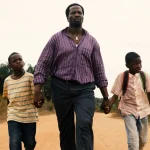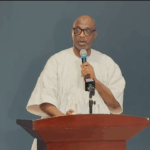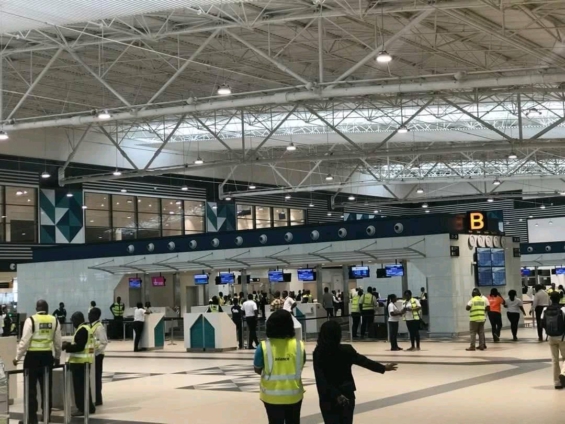I bolted from church one Sunday, infuriated. When my pastor called for the entire congregation to pray for the government of Ghana, anger surged up inside me. We were instructed to pray for wisdom for our leaders, to ask God to guide them in addressing the pressing economic challenges and the scourge of galamsey.
But how could I sit there and join in? I was bewildered. Our leaders are not merely misguided; they are mired in corruption. They greedily grab land and properties while we suffer. How could I kneel or lift my hands to heaven in prayer for those complicit in the destruction of our rivers and the exploitation of our youth? These corrupt leaders use young people as pawns in their reckless pursuit of wealth from beneath the earth, all while the environment crumbles around us.
As I listened to the congregation’s voices lifted in prayer, I felt a mix of disbelief and frustration. The idea of praying for our corrupt, irresponsible leaders to change annoyed me. They know exactly what they are doing. They understand the harm they are inflicting on our country, yet we are supposed to plead with God to change them? Shouldn’t we be holding them accountable instead of absolving them through prayer?
In that moment, I realized how we tend to spiritualize everything when action is rather required—collective action, a demand for integrity and accountability. I must confess, I cursed them in my heart. I began to pray, “God, why do you allow them to destroy the earth you created, yet you tell the pastor to ask us to pray for you to change our leaders? Why are you indulging them?”
It was time to channel my anger into something more productive to seek ways to bring about real change rather than waiting for divine intervention that may never come. With that thought swirling in my mind, I stormed out.
Many well-meaning Ghanaians are clamouring for an end to galamsey, so why is President Akufo-Addo establishing committees to deal with this menace? “If you don’t want to solve a problem, establish a committee.” You may have heard this phrase many times, and there is truth in it, especially in the context of our nation’s leadership. Committees often serve as a convenient way to sidestep accountability and delay action.
Establishing a committee can feel like a smoke screen—a way to placate the public without addressing the core issues. It allows leaders to present an appearance of action without making any real commitments. Meanwhile, the people continue to suffer the consequences of inaction.
Committee members gather to discuss issues, generate reports, and propose recommendations, but too often, they become an end in themselves rather than a means to real solutions. Instead of enacting meaningful change, these groups can end up deflecting responsibility. Meetings are held, discussions are had, but concrete action often gets lost in bureaucratic red tape. This phenomenon frustrates me to no end. In my nearly four decades on this earth, I have seen committees convene for everything from tackling economic woes to addressing the galamsey crisis. Each time, there’s a promise of progress, a glimmer of hope that things might finally change. Yet, as weeks turn into months and months into years, the issues remain unresolved, and our leaders continue their destructive practices, seemingly unfazed by the mounting evidence of their failures.
Let’s stop allowing committees to become a refuge for inaction. It’s time to channel our frustrations into real change—change that doesn’t just exist in meetings but manifests in tangible improvements for our country.
Why are we allowing people to mine and cut down trees in forest reserves, only to spend millions on afforestation programmes? Does this even make sense?
Why are we making life difficult for our unborn children who will have no choice but to be forced to import water?
My colleague Alice Aryeetey reported on Biriwa, a community in the Central Region facing severe water challenges due to galamsey. One woman she interviewed said that because they bath with polluted water, they are now prone to vaginal infections. I had never stretched my mind that far, but then I realized the possibility, given the extent of pollution.
It’s time to stop praying for change and start demanding it. The suffering of our people is too great, and we can no longer afford to look away. The bible in James 2:17 says faith by itself, if it is not accompanied by action, is dead.
I believe that when President Akufo-Addo declared, “We are sitting on wealth yet are impoverished,” he wasn’t exactly suggesting we turn our stunning country into a mining free-for-all. But who knows? His inaction has me pondering all sorts of conspiracy theories.
I’ll remember Akufo-Addo as the president who made senior high school education free for all—but let’s not forget he also oversaw an environmental holocaust. Talk about mixed legacies!
















